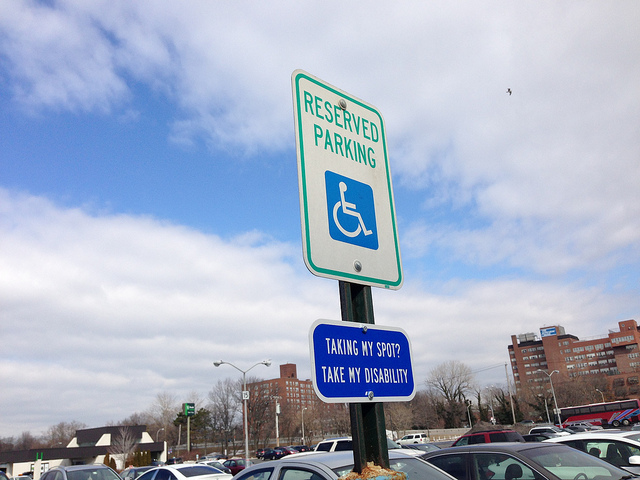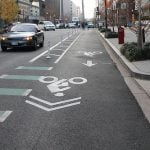To stop disabled parking violations, do you aim for the wallet or conscience?
For many, the temptation of a disabled parking spot is too great to resist. Whether it’s borrowing a family member’s legitimate placard, using an illegally printed permit, or simply parking at the spot for “just a minute”; many will violate the law for the sake of convenience.
To show how rampant disabled parking abuse has become, parking enforcement authorities in Kentucky, with the Elizabeth police department, took WHAS11.com to investigate a problem that could get worse in the coming years.
The group roved the city of Louisville. As predicted, there were instances of parking violation. People who did not have a specialty license plate or handicapped stickers displayed in their car window parked in disabled parking spots. One person had illegally parked outside a fitness center and a hair salon.
Why is disabled parking violation so common?
More often than not, violators look at parking in an accessible spot as a victimless crime because they do not see people being affected. In other cases, they treat disability more as a benefit and less, well, like a disability. It’s a special pie and everyone wants a share.
So, how do you change this perception? How do you make people get affected? Fines (which can go from $20 to$100 in Kentucky) for unrightfully parking in a disabled spot are obviously not working. However, higher fees with tighter scrutiny during the issue and renewal process of permits may deter people from illegally obtaining and using disabled parking permits.
Whas11.com reports that in Kentucky, David Allgood with the Center for Accessible Living in Louisville has gone before lawmakers seeking tougher laws for those who violate accessible parking. “I would hope that the physicians that issue these things would be more strident and their looking into whether that patient really needs this parking placard,” said Allgood. “In 2008, there used to be an $8 fee to get the parking placard. In 2009, they dropped that fee to nothing. It went from 23,000 placards that year to 115,000 the next year.” Allgood was not sure whether $8 made that much difference but it’s been averaging 125,000 since then.

View the sign here.
But that just solves one part of the problem. How do you stop people who do not use an ill-gotten permit but park in an accessible spot anyway?
What about an appeal to people’s conscience? A couple of months ago, a few intrepid members of our team went around Brooklyn and posted signs with the wording: ‘Take my spot? Take my disability’ on different businesses’ disabled parking spots. Could community movements like this help?
Disabled spots exist because there are those who need them. Having a disability is not a privilege. So when you take away someone’s parking spot, you are taking away their mobility and equal access. Violations create both discomfort and inequality.
Read the full account of the ‘Take my spot? Take my disability’ movement and the inspiration for it here.
Related Posts
Category: Disability




















